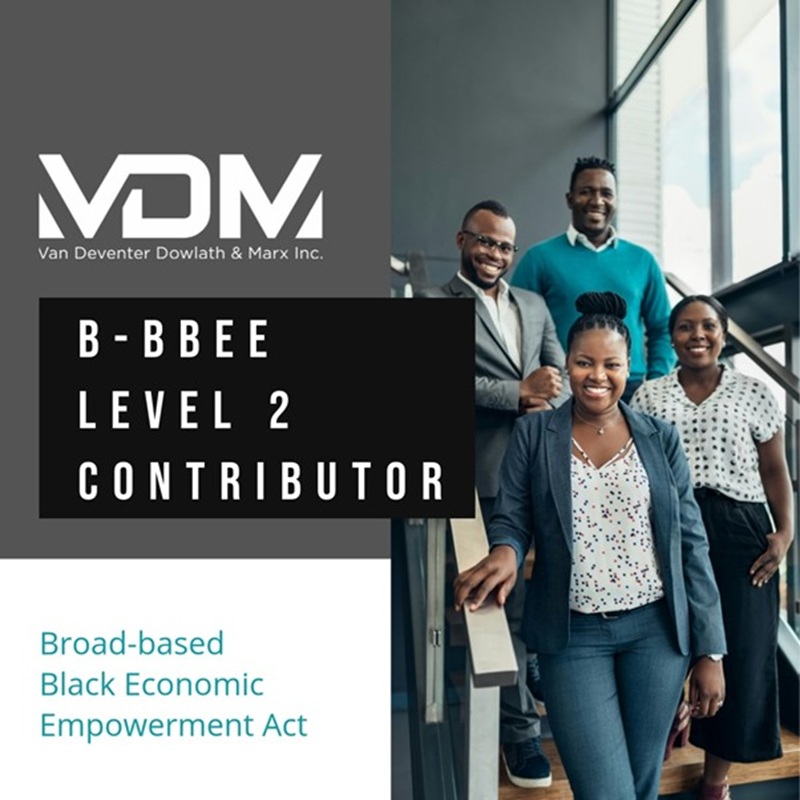The Broad-Based Black Economic Empowerment (B-BBEE) Act (Act No. 53 of 2003) is a cornerstone of South Africa’s legislative framework for economic transformation. Its primary aim is to promote the meaningful participation of black South Africans in the economy and correct structural inequalities created during the apartheid era.
The Black Economic Empowerment Act encourages inclusive ownership, management, and control across sectors — from financial services to property and professional services — while also promoting skills development, employment equity, and enterprise development.

Objectives of the B-BBEE Act
The key objectives of the Act are to:
- Promote Economic Transformation – Seeks to transform the South African economy by increasing the participation of black people in the economy at all levels;
- Redress Past Inequalities – Addresses the economic disadvantages faced by black South Africans due to apartheid-era exclusions from wealth creation and ownership;
- Increase Black Participation in Ownership and Management – Aims to ensure black individuals and communities have a greater stake in business ownership, board-level control, and executive leadership;
- Encourage Skills Development – Promotes structured training and capacity building among black South Africans to support long-term access to economic opportunities; and
- Foster Corporate Social Responsibility – Encourages private-sector investment in community development and socio-economic upliftment programmes that benefit black communities directly.
The B-BBEE Act is not just about compliance — it is about building a more inclusive economy through measurable, sustained contributions to transformation.
Key Features of the Broad-Based Black Empowerment Framework
- Legal Framework – Provides the structure for implementing B-BBEE through legislation, guiding how government and private sector engage on empowerment;
- Codes of Good Practice – Issued by the Minister of Trade, Industry and Competition, these codes define the specific indicators and weightings used to evaluate B-BBEE compliance;
- Transformation Charters – Sector-specific charters outline tailored empowerment goals and benchmarks for industries like law, property, mining, and finance;
- B-BBEE Advisory Council – Advises the Minister on national policy, monitors progress, and helps ensure implementation across the public and private sectors;
- Enforcement – Provides mechanisms to monitor, verify, and enforce B-BBEE implementation through scorecards, certificates, and procurement consequences.
Through these mechanisms, the B-BBEE Act becomes a living instrument, shaping procurement decisions, licensing eligibility, and access to business opportunities.
What B-BBEE Compliance Involves
B-BBEE compliance is measured using a scorecard that assesses an entity’s performance across five key elements:
- Ownership – Measures black ownership in the business, including voting rights and economic interest.
- Management Control – Assesses black representation at board and senior management level.
- Skills Development – Captures training spend and skills investment in black employees and learners.
- Enterprise and Supplier Development – Focuses on procurement from empowered suppliers and investment in black-owned small businesses.
- Socio-Economic Development – Looks at contributions to social upliftment, particularly of black communities
Each of these elements is weighted, and the final score determines a business’s B-BBEE recognition level — from Level 1 (highest contributor) to Level 8 (lowest). Certification is often required for bidding on public tenders, subcontracting, and private procurement chains.
The Legal Sector Code
The Legal Sector Code (LSC) under the B-BBEE Act was developed to promote transformation within the legal industry. It sets targets and criteria for black ownership, employment equity, and supplier development within law firms and legal service providers.
Key focus areas include:
- Ensuring that black attorneys and advocates have fair access to procurement opportunities
- Promoting black ownership of legal practices
- Encouraging senior-level black representation in leadership roles
- Fostering mentorship and development of junior black legal professionals
Law firms that engage in public sector work, or that wish to grow in competitive procurement environments, are increasingly expected to demonstrate real, measurable B-BBEE performance in line with the Legal Sector Code.
The B-BBEE Property Sector Code
The B-BBEE Property Sector Code is a sector-specific charter aimed at advancing transformation in the real estate and property services industries. It applies to a wide range of property-related activities, including:
- Property developers
- Owners and investors
- Estate agents
- Property managers and facility managers
- Mortgage originators and finance intermediaries
- Valuers and consultants
The Property Sector Code promotes black ownership and control, encourages supplier development, and sets targets for skills training and employment equity within the sector. It also incentivises property transactions in underdeveloped or underserved areas, helping to correct geographic and economic imbalances.
For conveyancers and property lawyers, understanding the Property Sector Code is essential. Legal professionals in the property space need to support and align with transformation principles in how they recruit, train, and deliver services to clients — particularly in large-scale commercial or government property deals.
Work with a B-BBEE-Aligned Legal Partner
B-BBEE compliance is more than a regulatory requirement — it’s a strategic advantage. Businesses across industries are increasingly expected to partner with suppliers and service providers that not only understand the B-BBEE landscape, but who actively contribute to it.
VDM Incorporated is a Level 2 B-BBEE Contributor with over 35 years of experience in property law, conveyancing, litigation, and regulatory compliance. We advise clients on how B-BBEE impacts procurement, property transactions, and contract law — and we lead by example in driving transformation within our own practice.